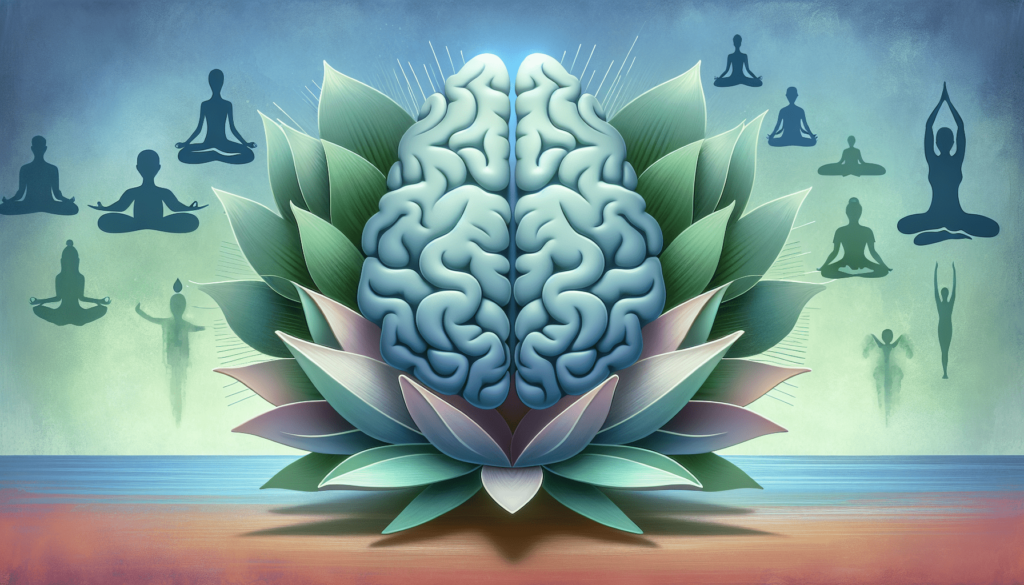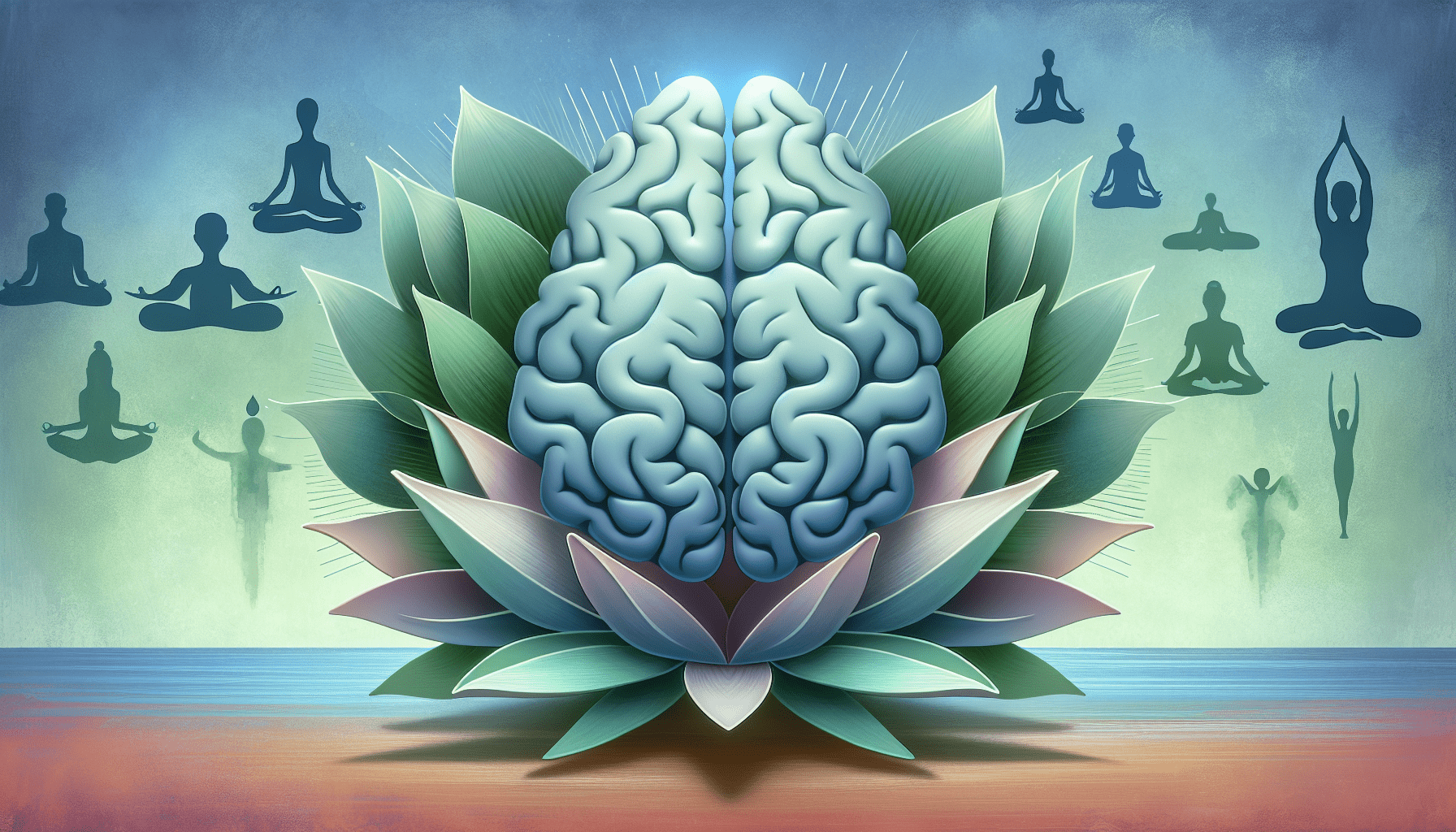I’ve always been fascinated by the unexpected perks of practicing yoga, especially when it comes to brain health. “The Quirky Positives of Yoga for Your Brain” takes you on an enchanting journey through the lesser-known mental benefits of yoga. From enhanced creativity to improved memory function, the article sheds light on how this ancient practice goes beyond flexibility and mindfulness. It reveals how specific poses and breathing exercises can act like a natural brain boost, making every yoga session a way to nurture not just the body, but the mind too. Have you ever wondered what kind of peculiar, delightful things yoga can do for your brain? I certainly have.

The Quirky Positives of Yoga for Your Brain
Yoga is often associated with physical prowess—think bending yourself into pretzel-like shapes or standing on one foot for an uncomfortable amount of time. But let’s take a journey to uncover the overlooked, quirky, and downright fascinating mental perks that come with this ancient practice. Grab your yoga mat and let’s get down (dog) to it!
Mindfulness: The Art of Being Here, Now
Mindfulness sounds like one of those buzzwords that scream, “Meditate until you float above your own body!” However, yoga introduces mindfulness in a way that’s grounded and practical.
Practicing yoga encourages you to focus on the present moment. Whether you’re trying to perfect your Warrior II pose or merely surviving your first Downward Dog, there’s little room to ruminate over yesterday’s awkward conversation. This laser-focus on the “now” reduces stress, alleviates anxiety, and helps sharpen your overall cognitive functions. Imagine mindfulness as a brain gym where you flex neurons instead of muscles.
Neuroplasticity: Shape-Shift Your Brain
One of the unsung perks of yoga is how it fosters neuroplasticity, a fancy term that means your brain can rewire and adapt itself, even as an adult. Neuroplasticity is crucial for learning new things, adapting to new situations, and recovering from neurological setbacks.
The various poses, breathing techniques, and mindfulness practices in yoga stimulate different parts of your brain, encouraging them to communicate better with each other. Think of it as a board meeting where every brain cell gets a chance to speak and listen, leading to more effective and efficient problem-solving capabilities.
Emotional Regulation: Keep Calm and Carry on
Ever notice how some yoga practitioners seem to have an almost unnerving calmness about them? It’s like they float through life on a serene cloud while the rest of us slog through a stormy sea of emotional turmoil.
Yoga has a peculiar way of helping you harness your emotions. The practice teaches you to acknowledge your feelings without letting them take over your decision-making process. Yoga doesn’t eliminate stress (it’s not sorcery, after all), but it equips you with the tools to manage it better. Through consistent practice, you might find yourself less likely to snap at your barista for getting your complex coffee order wrong.
Memory Improvement: Never Forget a Birthday Again
Forgetting birthdays, anniversaries, or the punchline to a joke can be quite the social faux pas. Yoga can subtly boost your memory by reducing stress and increasing focus—key ingredients for good recall.
When the stress hormones cortisol and adrenaline are reduced through yoga, your brain is in a better state to process and store new information. Additionally, yoga’s emphasis on mindfulness and concentration can improve your attention span, making it easier to absorb details you might otherwise overlook.
Creativity Unleashed: Tap into Your Inner Picasso
Feeling creatively stuck? Whether you’re a writer staring at a blank screen or an artist grappling with an uninspired canvas, yoga has your back (and front, and sides too).
Yoga clears mental clutter, making room for a flood of creative ideas. Think of your brain as a crowded attic; yoga is the organizational expert that cleans up and frees up space for the treasures hidden beneath layers of dust. The deep breathing techniques and meditative aspects are particularly impactful in bringing you into a “flow” state where creativity can flourish.
Social Connectivity: Namaste, New Friends!
Let’s not forget that yoga can be a social activity. Joining a yoga class, whether in person or online, creates an opportunity to meet like-minded individuals. Believe it or not, practicing yoga can improve your brain’s social skills.
By lowering social anxiety and promoting a sense of belonging, yoga helps you form meaningful connections. It’s fascinating how the act of synchronizing breath and movement with others can build a sense of community and mutual understanding, making you more socially adept and empathetic.
Table: Quick Summary of Brain Benefits from Yoga
| Benefit | Description |
|---|---|
| Mindfulness | Improved focus and stress reduction |
| Neuroplasticity | Enhanced learning and adaptability |
| Emotional Regulation | Better emotion management and stress coping mechanisms |
| Memory Improvement | Reduction in stress hormones, improved recall |
| Creativity | Mental clarity leading to a ‘flow’ state |
| Social Connectivity | Lowered social anxiety and improved social skills |
Sleep Better, Think Better
Have you ever had one of those nights where you just can’t seem to shut off your brain, no matter how many sheep you count? Insomnia can be a real problem, and let me tell you, it doesn’t do your brain any favors.
Yoga helps improve sleep quality by promoting relaxation and reducing stress. Better sleep results in better cognitive function, mood, and overall brain health. Think of it as charging your smartphone overnight to ensure it runs smoothly the next day. Except in this case, the smartphone is your magnificent brain.
Cognitive Dissonance: Tolerate the Tug-of-War
Imagine trying to juggle conflicting thoughts—like ordering a salad when what you really want is a cheeseburger. This inner tug-of-war is cognitive dissonance at its finest. Yoga, with its emphasis on balance and harmony, can help you navigate these mental gymnastics.
By practicing yoga, you learn to become more comfortable with uncertainties and conflicting information. You develop a mental resilience that allows you to hold opposing ideas without cracking under pressure. It’s like being your own mental trapeze artist, gracefully swinging from one thought to another without losing your grip.
Pain Management: Mind Over Matter
Living with chronic pain can turn your brain into a fortress of doom and gloom. Yoga’s role in pain management is often underrated but incredibly important. By focusing on breathing and mindfulness, yoga helps you shift your focus away from pain.
Remarkably, yoga can even alter your pain perception. With regular practice, your brain’s ability to cope with pain improves, reducing the intensity and frequency of pain episodes. You might still feel the pain, but it doesn’t dominate your thoughts or dictate your mood.
Mind-Body Connection: The Mental Feedback Loop
The mind-body connection is a cornerstone of yoga practice. When you become acutely aware of how your body moves and feels, you start to generate more positive feedback loops in your brain. This awareness helps you better understand and respect your body, leading to healthier choices and improved mental well-being.
It’s a bit like planting a garden; the more you nurture and observe it, the more it flourishes. Your brain benefits from this attention to physical detail, fostering a more harmonious relationship between your mind and body.
Table: Techniques in Yoga that Benefit the Brain
| Technique | Brain Benefit |
|---|---|
| Mindfulness Meditation | Stress reduction, improved focus |
| Deep Breathing | Better emotional regulation, relaxation |
| Balancing Poses | Enhanced cognitive flexibility |
| Synchronized Movements | Improved social skills and connectivity |
| Meditation with Mantras | Boosts memory and concentration |
| Visualizations | Enhanced creativity and problem-solving |
Yoga Literature: Yogi Wisdom for Your Brain
Diving into yoga literature can be another quirky way to enhance your brain power. Texts like the Bhagavad Gita or The Yoga Sutras of Patanjali offer deep philosophical lessons that stimulate your intellectual curiosity and philosophical thinking.
Studying these works helps you develop a broader perspective on life, instilling wisdom that can be applied in various mental and emotional situations. It’s like combining a mental workout with a treasure hunt, where the prize is a more insightful and adaptable brain.
Cultivating Patience: Wait and See
Yoga is a slow burn. Unlike a spin class where you see immediate physical results, yoga rewards patience—another virtue beneficial to your brain. Practicing patience through yoga teaches you to be less reactive and more thoughtful in your responses, a valuable skill in both personal and professional life.
This cultivated patience can enhance your problem-solving abilities, making you less likely to rush decisions and more apt to consider all facets of an issue before acting. It’s like turning your brain into a chess grandmaster, always several moves ahead.
Cultivating Curiosity: Questions over Answers
One of the quirkiest positives of yoga for your brain is the way it stimulates curiosity. The varied poses and philosophical aspects of yoga raise questions before providing answers. What is the meaning of this pose? Why synchronize breath with movement? Yoga teaches you to value the journey of discovery, rather than the final destination.
This cultivated curiosity keeps your brain nimble and willing to explore new ideas and concepts. Imagine your brain as an adventurous explorer, continually seeking out new territories to chart and understand.
Brain on Joy: The Happiness Hormone Party
Last but certainly not least, yoga orchestrates a delightful symphony of hormone releases that amplify happiness. Dopamine, serotonin, and endorphins–the brain’s feel-good chemicals get a splendid boost through yoga practice.
Happiness is not just a pleasant sensation; it is the fertile ground from which innovative thinking and resilience grow. While practicing yoga, your brain gets frequent doses of these happiness hormones, bolstering your mood, and by extension, your mental agility and resilience.
Wrapping It Up: Your Brain on Yoga
So there you have it—a quirky, comprehensive look at the fascinating ways yoga benefits your brain. From mindfulness to emotional regulation, from creativity to social connectivity, yoga is a mental Swiss Army knife that keeps on giving.
The next time someone suggests yoga, don’t just think about those stretchy pants or the seemingly impossible poses. Think about the quirky, hidden benefits that make your brain stronger, sharper, and just generally better at navigating the complex tapestry of life.
Namaste, and stay curious!

